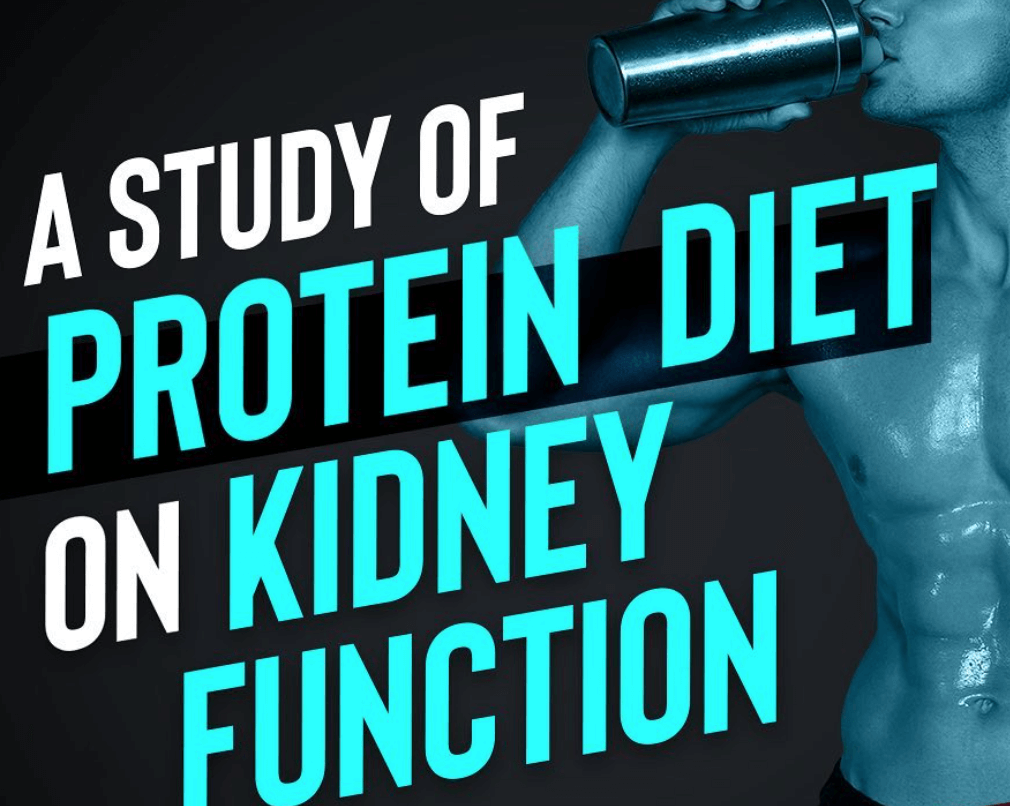There is a lack of studies that have examined the effects of high protein diets on markers of health, body composition or performance. The International Society of Sports Nutrition’s Position Stand on Protein states that “protein intakes of 1.4–2.0 g/kg/day for physically active individuals are safe, and it may improve the training adaptations to exercise training”.
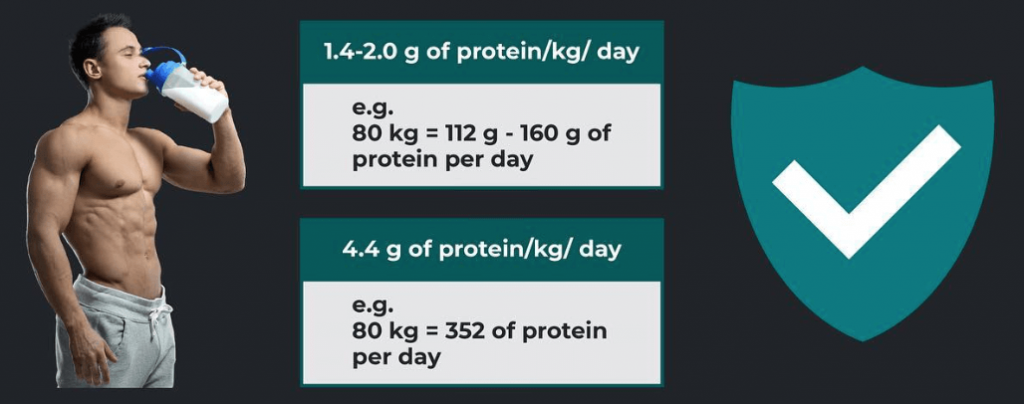
Previous work from our laboratory examined a true high protein diet (4.4 g/kg/day) on body composition and performance measures. In essence, consuming over five times the recommended daily allowance of protein did not affect body composition in resistance-trained individuals who otherwise maintained the same training regimen.
PURPOSE OF THE STUDY
The purpose of the present investigation was to determine the effects of a high protein diet (>3 g/kg/day) in resistance-trained males with extensive weight-training experience. The study wants to find out if significantly increasing protein intake would affect clinical markers of health (i.e., lipids, kidney function, etc.) as well as performance and body composition. This is the first randomised, crossover trial on high protein diets.
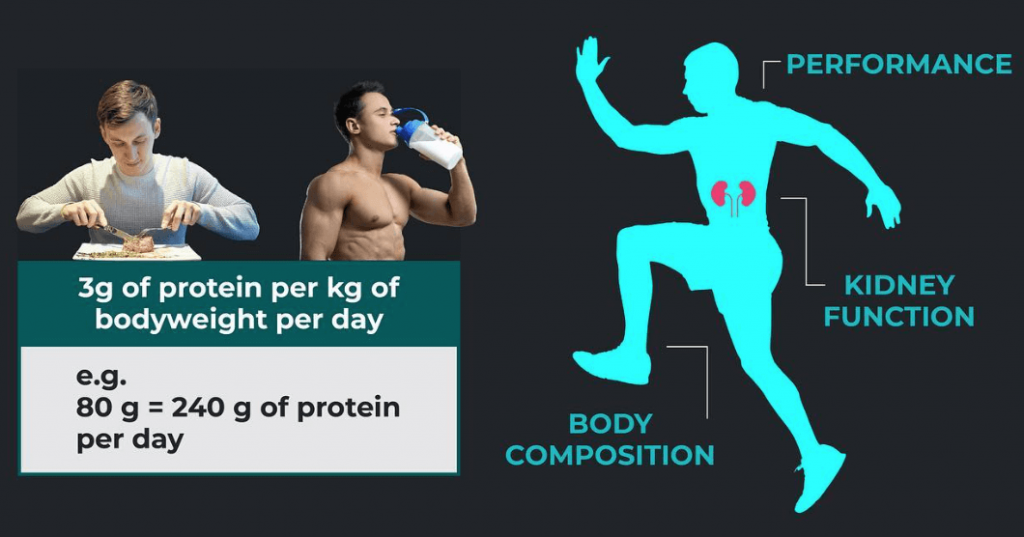
EXPERIMENT
Twelve (12) resistance-trained male subjects volunteered for the investigation. Subjects took part in a randomised crossover trial in which they consumed their habitual normal protein (2.6g/kg/day) or high protein (3.3g/kg/day) diet for two 8-week periods. Thus, there was a total treatment period of 16 weeks (i.e., 8 weeks on normal or high followed by 8 weeks on the opposite diet).
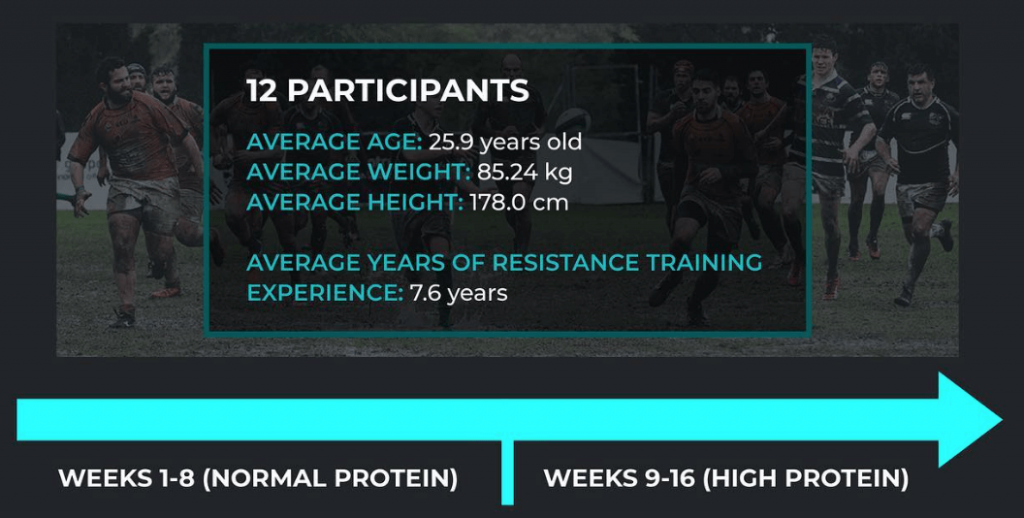
Subjects came to the laboratory on three occasions: baseline, week 8 and week 16. The extra protein consumed by each subject was obtained primarily from whey protein powder.
Subjects kept a food diary (three days per week for the 16 week period = two weekdays and one weekend day) of their food intake via a smartphone app (MyFitnessPal)
Thus, the data themselves are primarily derived from food labels (i.e., Nutrition Facts Panel) derived from the USDA National Nutrient Database. Thus, in order for subjects to consume a high protein diet, protein powder was provided at no cost to the research subjects. However, they were not required to consume protein powder. The rest of their dietary protein was obtained from their regular food intake
Each subject followed their own strength and conditioning program. The investigators were in regular contact with each subject to ensure that each subject completed a training log. The volume load (total weight lifted per week) was determined for each 8-week period. Performance testing was also performed.
Performance testing included the one-repetition maximum (1-RM) bench press and repetitions to failure (RTF) at 60 % of the bench press 1-RM. Performance tests were conducted by certified strength and conditioning specialists.
A maximum of five attempts was attempted for the 1-RM bench press. Once the subject achieved their 1-RM, they rested for 3–5 mins. prior to commencing the 60 % of their 1-RM bench press. The maximal number of repetitions was subsequently determined.
RESULTS
There were no significant differences between the normal and high protein groups for body composition and performance.
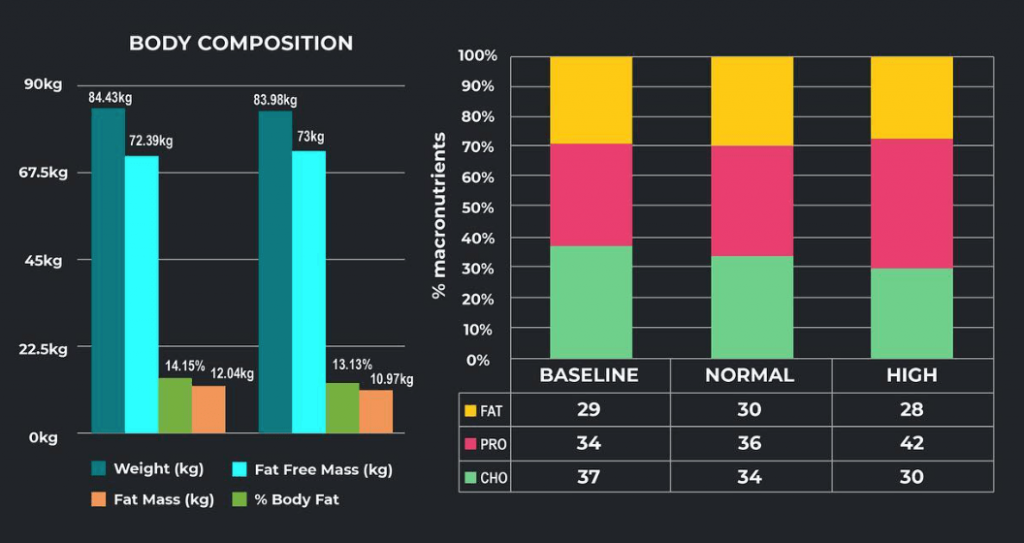
However, there were significant differences in total energy and protein intake between the high protein and normal protein group. The mean percentage of macronutrients (CHO:PRO:Fat) were as follows: Baseline (Week 1) – 37:34:29, Normal – 34:36:30 and High – 30:42:28.
The high protein group consumed significantly more calories and protein than the normal protein group. However, there were no differences in dietary intake between the groups for any other measure. Moreover, there were no significant changes in body composition or markers of health in either group.
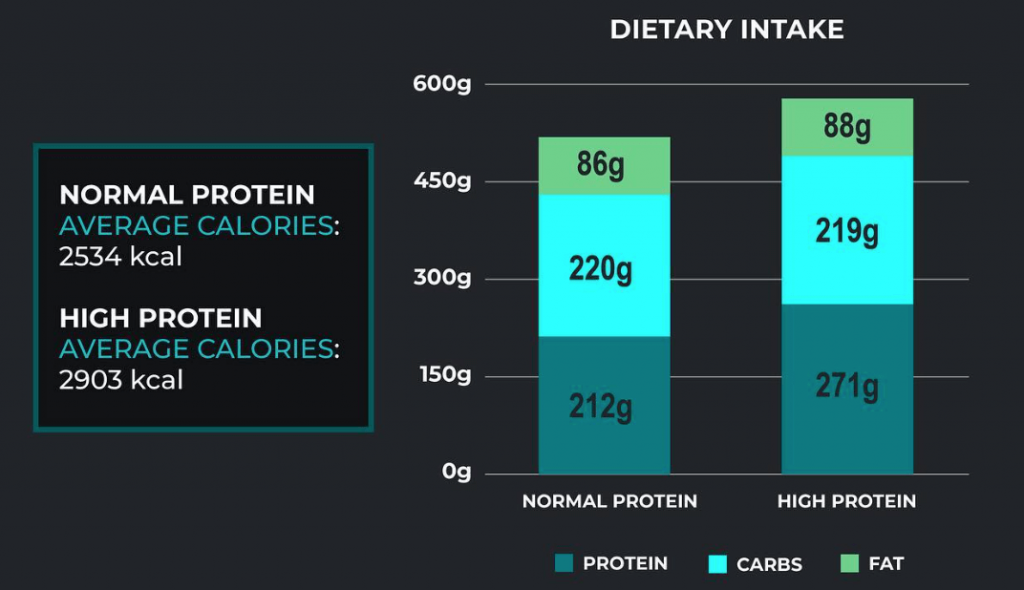
There were no differences between the two protein groups for any measures of blood lipids.
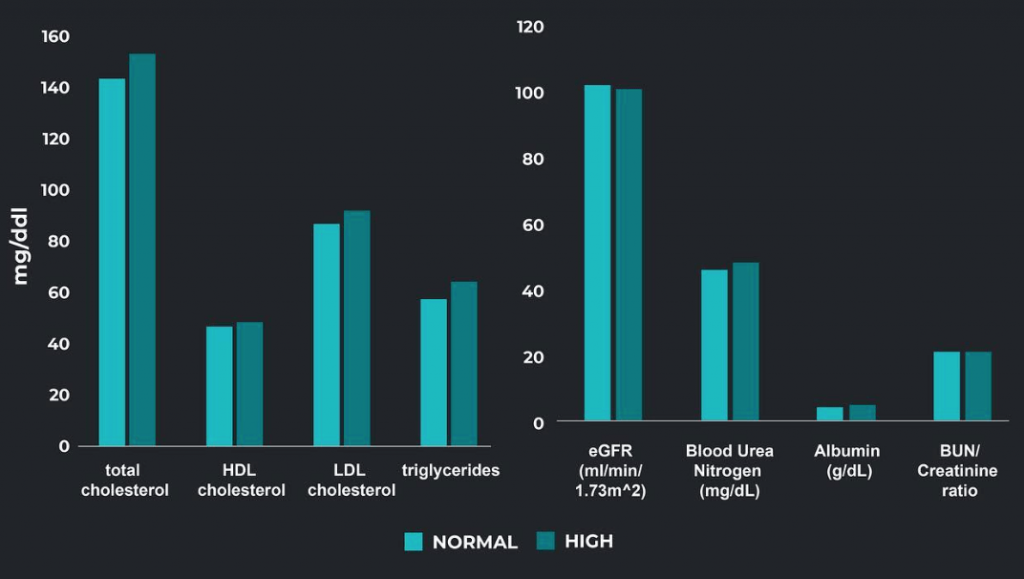
No differences were also found between the two protein groups for any measures of kidney function. Overall, there were NO side effects (i.e., blood lipids, glucose, renal, kidney function etc.) regarding high protein consumption. All measurements fell within the NORMAL RANGE.
CONCLUSION
In resistance-trained young men, consuming a high protein diet (2.6 to 3.3 g/kg/day) over a 4-month period has NO effect on blood lipids of renal and hepatic function markers. Nor were there any changes in performance or body composition. This is the first crossover trial using resistance-trained subjects in which the elevation of protein intake to over four times the recommended dietary allowance has shown no harmful effects. In addition, there are many studies showing that there are no harmful effects of high protein on kidney function.
NEXT STEPS
The study shows that eating a high amount of protein does not cause kidney damage in healthy individuals. If your goal is to improve your body composition, training and performance, make sure you consume sufficient protein to support your body without worrying that your kidneys will be damaged.
REFERENCES
Antonio, J., Ellerbroek, A., Silver, T., Vargas, L., & Peacock, C. (2016). The effects of a high protein diet on indices of health and body composition–a crossover trial in resistance-trained men. Journal of the International Society of Sports Nutrition, 13, 3. https://doi.org/10.1186/s12970-016-0114-2
P.S You can buy any 3 items from our new range for £50 (saving you £25), We ship globally too.
Use code “3for50” to apply the discount.
